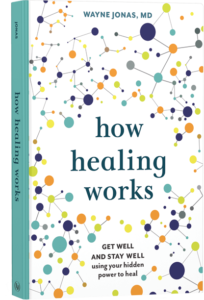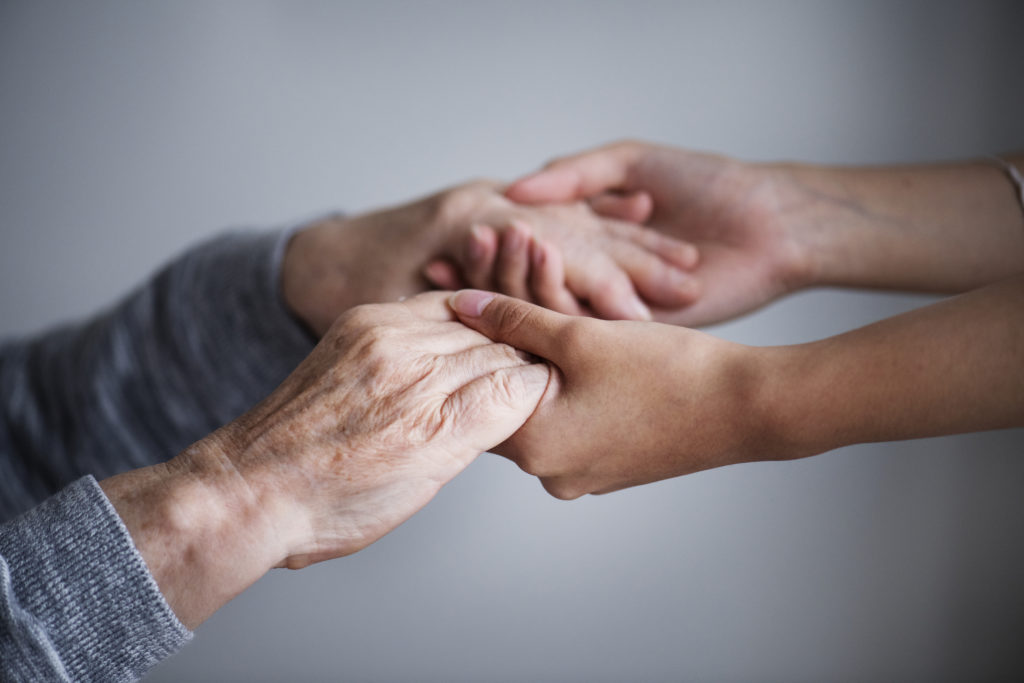As a caregiver, you have a unique set of needs and great strengths that help you navigate your journey. Caregivers face a constantly evolving role that changes with the health and needs of your loved one. You may deal with false and/or real expectations and feel a roller coaster of emotions associated with them. Being a caregiver is a long journey, often with unforeseen and unique barriers. As such, self-care is essential to your health and wellbeing as well as that of your loved one.
When most people think of self-care, they think of exercise and eating well. Those are two important topics, but the core of wellbeing comes from how you feel about yourself, your life and your relationships.
Your Sense of Self
Who you are at your deepest level includes the thoughts, feelings and wishes that come from the mind. It also includes your spiritual life and having a sense of meaning or purpose. Those caring for a loved one can lose that sense of self. Even as you love and want to help your service member or veteran, you may feel that your whole life is bound up in the illness or injury. Acknowledging that who you were before and who you are now may not be the same can be a painful process. The goal is to work toward accepting your new self as a complete person who has grown from your experiences.
Be Empowered By Your New Role
Each day comes with new challenges that test and build your resilience. Resilience does not mean bouncing back to become the same person you were before. Instead, you transform into someone better, stronger and more aware than you ever were before.
Caring for someone else teaches you soft skills, such as compassion, love and empathy, as no other experience can. You also learn practical skills such as time management, patient advocacy, listening and communication skills, and many others.
Many caregivers don’t give themselves credit for these new experiences. This can lead to a devaluing of what you do each day. Instead of seeing what you don’t or can’t do anymore, give yourself credit for your resilience. This can create new meaning in life and work—something critical to balance in mind-body-spirit.
Activate Your Healing Presence
For many, spirituality, faith and religion are central parts of who they are. They can influence how you cope with trauma and loss. They help you find happiness and meaning within rather than from external influences such as money, belongings, work, fame or food, which may leave you feeling empty, lost and alone.
The same mind-body practices that help you develop a sense of spirituality can counteract stress and its harmful effects. The most important thing to know when it comes to mind-body practices is that there is no single right way; these practices go through cycles of popularity.
However, all have the same intended effect of breaking the train of everyday thoughts. What works for someone else may not work for you. Consider these factors when picking a mind-body practice:
- Physical Energy: Do you enjoy being active?
If yes, consider a moving meditation like Tai Chi, Qi Gong, yoga, walking and running, or an active meditation like art therapy or journaling.
If no, consider breathing techniques, meditation (transcendental meditation) or mindfulness-based stress reduction, loving-kindness meditation, progressive muscle relaxation, etc.
- Self vs. Practitioner-based: Practices such as acupuncture or massage require making time to see an outside practitioner.
For some caregivers, that timeout can be relaxing, while others may find it stressful to go to one more appointment.
Some practices require nothing more than your attention and a few seconds (breathing, mantra repetition). And there are various others that, once learned, can be practiced on your own, such as acupressure, Reiki, yoga or Tai Chi.
- Time: Consider what fits into your schedule.
Do you have 30 seconds? Five minutes? An hour? There is a mind-body practice for every moment.
- Belief and Conviction: Choose a practice and terminology that fits into your belief system.
Whether you call it making time for prayer, meditation or quiet reflection, what’s important is that you are practicing self-care. It is not important to be convinced that the practice will work for you. However, it is important to set your skepticism aside and look at it with a spirit of experimentation. Often taking that first step is the hardest, though the most important.
Try to schedule this time regularly. Knowing that you have time set aside just for you can be helpful.
Live In the Moment and Trust Your Inner Guidance
As you work toward being aware of your thoughts and feelings, notice how much of your day is spent thinking about the past or the future. Thoughts of the past can keep you from being present and making the most of this day. Many caregivers experience extreme worry and fear when looking too far ahead. Knowing that you are not alone in these feelings can help. Spend a few moments in a mindfulness practice of your choice or connect with other caregivers in an online support group.
How often do you ignore what your gut is telling you? You may think, “I should call a friend for support,” but decide not to because it’s late. Or think, “I wish I could reschedule those plans,” but attend to them anyway and regret it later. Over time, as you become mindful of your thoughts and feelings you will begin to trust your inner guidance. You may notice that when you follow your instinct you feel better. On the other hand, when you fall back into old patterns of holding back and doing what you think you should, you feel worse. Being mindful of your emotions is an important part of self-care. What you feel affects your ability to make healthy choices.
For more information, read The Caregiver’s Companion: A Caregiver’s Guide to Self Care.
 Take Your Health Into Your Own Hands
Take Your Health Into Your Own Hands
Drawing on 40 years of research and patient care, Dr. Wayne Jonas explains how 80 percent of healing occurs organically and how to activate the healing process.
